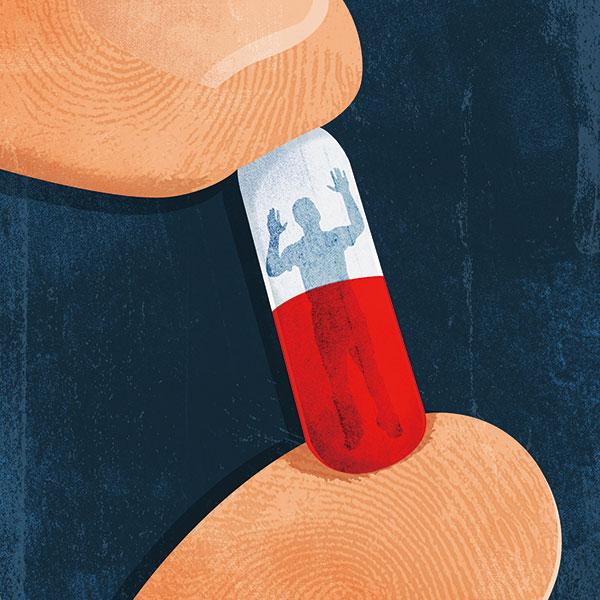The surgeon who treated Wang Meng now works for a men’s hospital in Harbin, capital of northeast China’s Heilongjiang Province. He told NewsChina that the business model of any men’s hospital in China is the pursuit of “low risk, high returns” and, as a result, hospitals have to make careful calculations on how to establish specialist departments and which kinds of medicines and treatment to provide.
He told our reporter that private hospitals, unlike comprehensive public hospitals, prioritize departments with the highest profits, and lucrative surgical procedures will always be the first recommendations. He attributed the popularity of private men’s hospitals to their niche segmentation of the market because public hospitals rarely open men’s departments, meaning patients’ only choice is to see a doctor at the department of urology or dermatology. Private hospitals perfectly fill the gap.
He added that surgical procedures are always the preference at men’s hospitals rather than medication. When medicines are prescribed, expensive imported brands are always recommended over domestic ones because the prices of imported medicines do not come under the regulations of health authorities.
“Doctors at private men’s hospitals learn how to make a quick buck themselves after a short period of work, even without any special training in making sales,” the surgeon said, adding that he will soon resign from the men’s hospital and start a new business.
In early 2016, Chen Jianguo, former dean of Yulin City Maternity Hospital in western China’s Shaanxi Province publicly reported the illegal acts of several private hospitals in the city, including setting up departments without permission, practicing without license and creating false records.
“The bottom line of medical institutions is to help the public, but some private hospitals care only about money,” he said. “To make matters worse, it is really disappointing that to date no government bodies responded to these problems after my reporting their names.”
According to Jiang Hui, director of the department of men’s health at the Chinese Medical Association, the treatment of men’s issues is relatively poor in China compared to gynecological provision. “In China, gynecology has been developed for more than 100 years, and the subject of andrology [treatment of conditions specific to men] was only established more than 20 years ago and has a lot of catching up to do.”
Jiang said that nowadays in China an increasing number of people visit hospitals for treatment of men’s issues because they have more money to spend and they want to pursue a better quality of life.
“Men’s issues are closely connected with quality of life. When people do not have enough to eat, nobody cares about impotence,” he said. “China has recently allowed each couple to have two children and infertility has become an urgent problem for some families.”
Statistics show that demand for treatment of men’s conditions in China has been on the rise in recent years. At Peking University Third Hospital, the number of outpatients in 2015 hit 120,000, up from 80,000 in 2012. In the first half of 2016, the hospital performed 1,244 operations to treat male conditions, a 14 percent year-on-year increase.
Jiang said China is home to only 3,000 doctors who specialize in male issues, adding that over the years the Chinese Medical Association has been advocating to make men’s health an independent medical category, but China’s National Health and Family Planning Commission (NHFPC), China’s top health authority, has failed to take any action to date.
“The NHFPC is responsible for setting up diagnosis topics, and the Ministry of Education is in charge of establishing academic topics,” he said. “It is very difficult for policymakers to strike a balance between academics and practitioners.”
As for the bosses of China’s vast number of private men’s hospitals, even though the official numbers are unclear, the specialization will remain a good money-spinner for a long time to come.

 Old Version
Old Version

